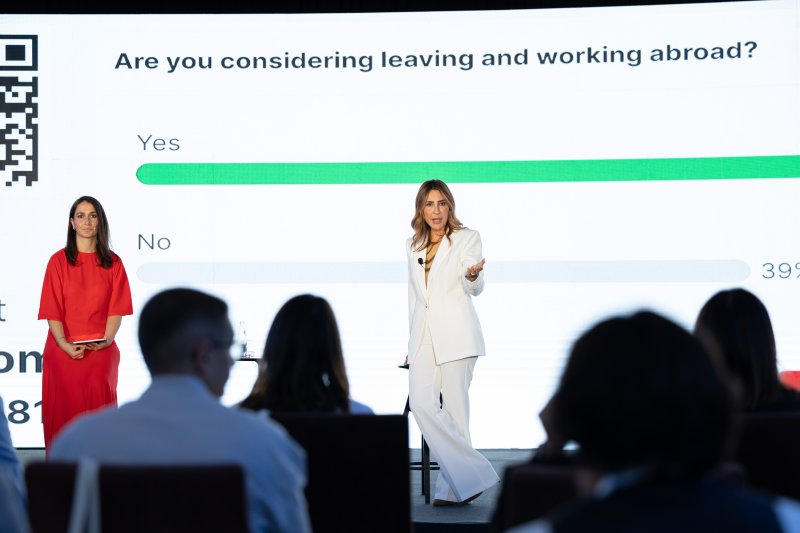Hiking Prices, Inflation Biggest Worry
The Regional Cooperation Council (RCC) presented on Monday in Tirana the tenth edition of Balkan Barometer, the region's largest public and business opinion survey, in Tirana.
The event was opened by RCC’s Secretary General Majlinda Bregu and Head of the European Union Delegation to Albania Silvio Gonzato followed by a presentation of Balkan Barometer findings through the Regional Fireside Talks between RCC Secretary General, Bregu, and the audience consisting of young representatives of regional youth organizations.
“Balkan Barometer reveals that hiking prices and inflation are the biggest worry this year for the people of Western Balkans, who for the past decade worried most about either economic situation or unemployment. This change doesn’t come as a surprise, given that inflation in the Western Balkans is nearly double that of the EU (8.1% to 3.4% respectively), while food prices are almost the same as in the EU. Yet, our GDP is just half of that of the EU," said RCC Secretary General Majlinda Bregu presenting the main findings of the survey.
"Things are changing—not only the circumstances around us but also our perspectives. Support for EU membership started at 39% in 2015, reached its peak of 62% in 2021 and from that moment, the decline started. Today, it stands at 54% —the lowest in six years. This enlargement fatigue is also reflected, though to a lesser extent, in business circles. While support for EU membership among business leaders has dropped by 7% over the past year, it remains higher than amongst the general public, with 64% still in favor. Despite this, many citizens remain hopeful. Forty-three percent believe that EU accession will happen by 2035, while a quarter think it will take longer. Encouragingly, fewer people than last year, 18%, believe their economy will never join the EU - a 10-point drop since 2022," added Bregu.
This annual survey has been conducted amongst six thousand people and 1200 businesses from the entire Western Balkans, giving an overview of their opinions on regional cooperation, EU integration, trust in the public institutions and media, their biggest concerns, employment, climate change, security, digital life, transport, rule of law, travel, etc. Since its launch in 2015, the survey talked to over 65,000 citizens and nearly 13,500 businesses showcasing their opinions.
"On a positive note, trust in regional cooperation is rising. This year, a record 82% of citizens expressed their support for it - the highest score since the launch of the Balkan Barometer in 2015. This underscores that regional cooperation has a value of its own, rather than being approached years ago in the context of European integration. However, nationalist politics continue to be seen as a major obstacle to regional cooperation. Though trust and optimism in the region remain cautious, there are signs of improvement in how people perceive these issues, as public opinion evolves as fast as political courage allows," concluded Bregu.
Some of the Balkan Barometer's main findings: Public sentiment is improved: from 35% in 2015 to 49% now; In 2020, 26% of the region’s citizens thought that Western Balkans gave them hope, but now this stands true only for 12%; In 2024, the predominant feeling is “Conflict” with 22%; 20% of Western Balkan citizens are hopeful to join the EU by 2030, while 23% expect it to happen between 2030 and 2035; In 2015, 27% believed it will happen by 2020 and 21% by 2025; Fewer people, 18%, believe their economy will never join the EU, a 10 percent point decrease from 2022; When we asked citizens in 2021 if they were willing to work in Western Balkans only 7% responded positively, while now in 2024, 22% of them are willing to do so; The trust in institutions is in the same low patterns: political parties remain the least trusted with 74%.













